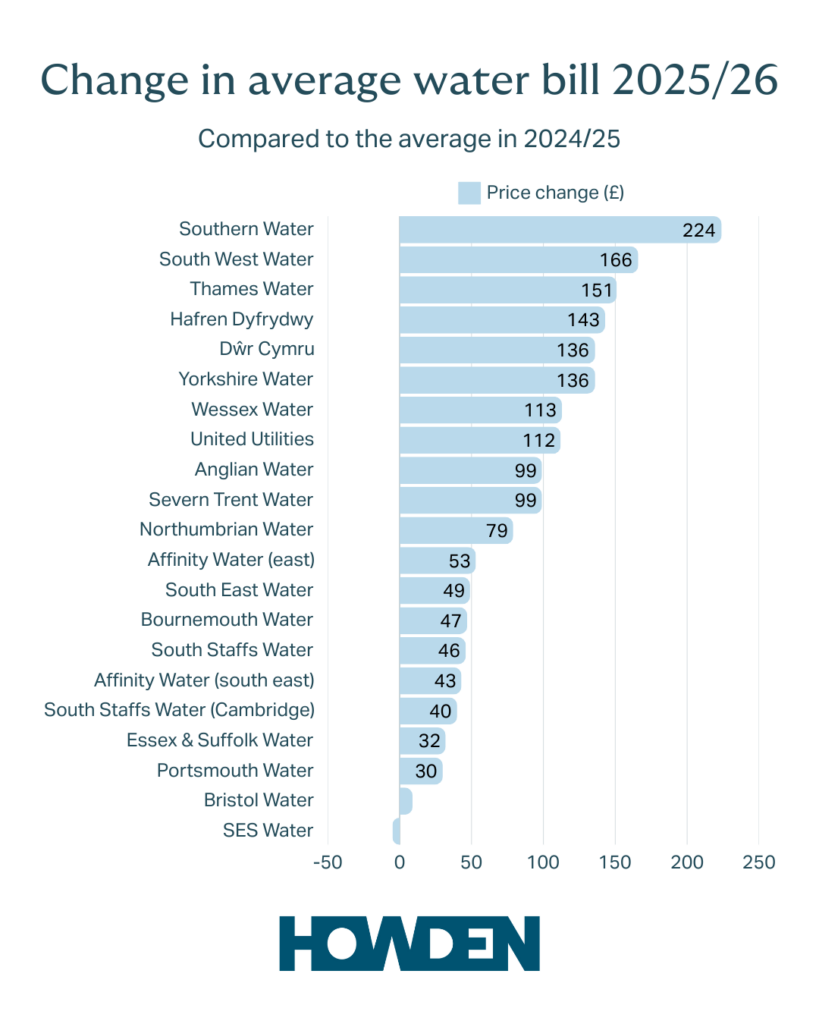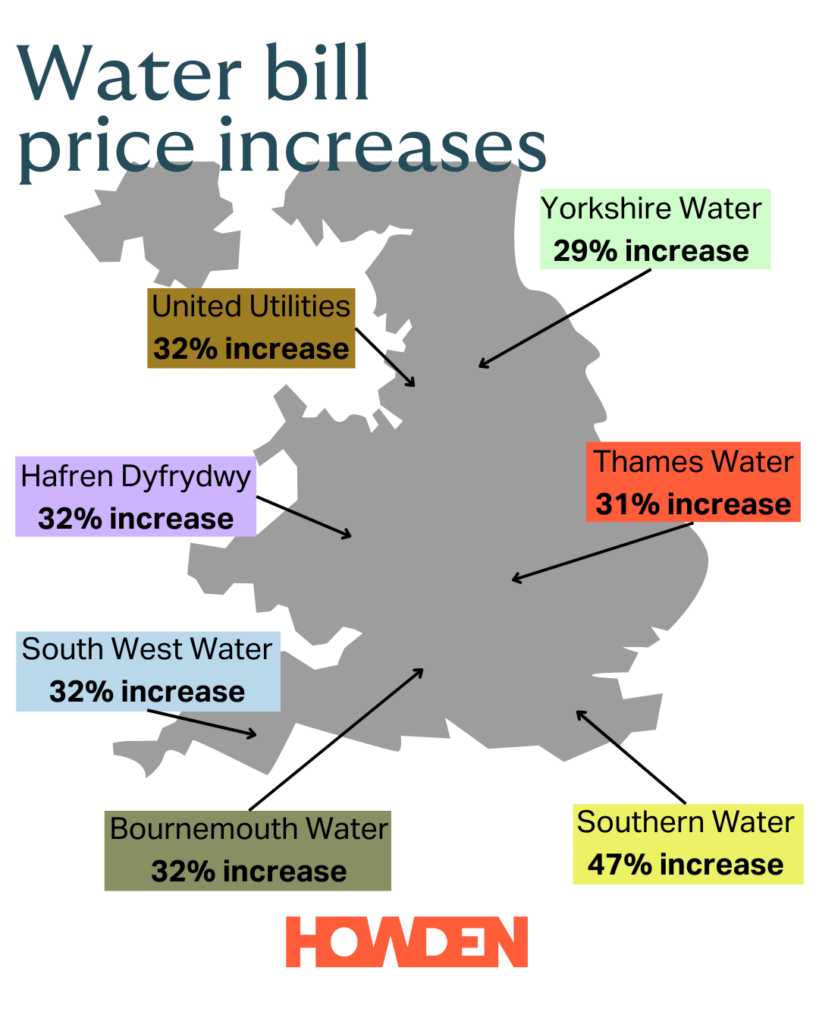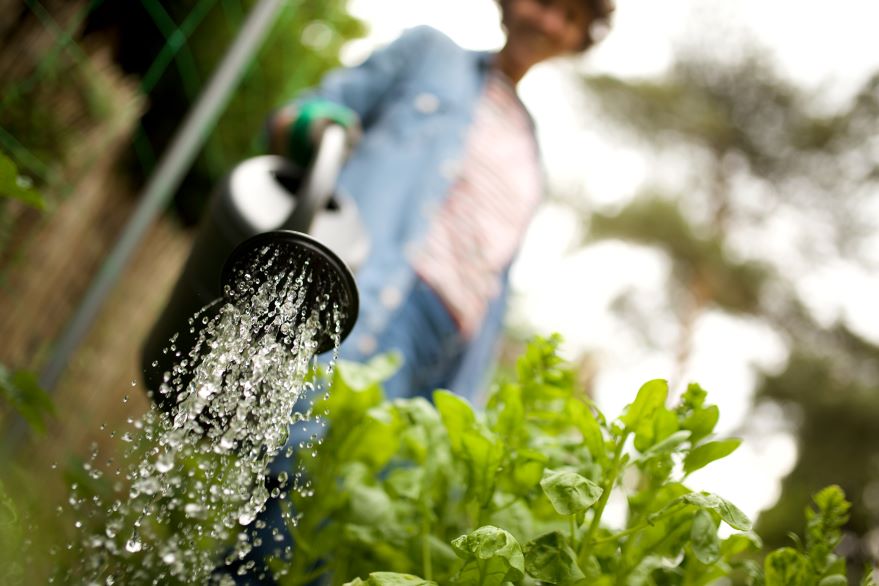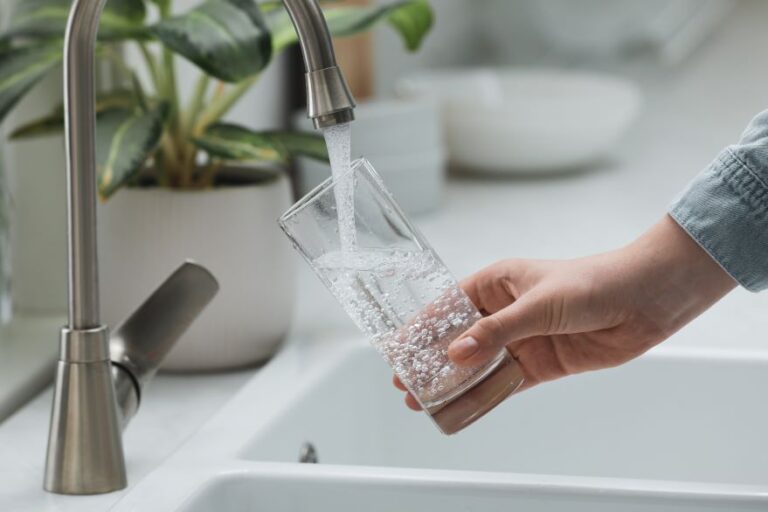After years of rising costs—energy bills skyrocketing, supermarket prices soaring —we now have more bad news: water bills are going up. And with prime gardening season approaching, when hose taps are set to be in constant use, this couldn’t come at a worse time.
How much are water bills rising by?
According to industry body Water UK, the average annual water and wastewater bill will rise from £480 to £603 over the next year. This represents an increase of roughly £10 per month, going from £40 to £50—though many households will see even larger price hikes.

- Southern Water customers will be the worst hit, with a 47% increase, bringing the average yearly bill to £703.
- Hafren Dyfrdwy and South West Water bills will rise by 32%.
- Thames Water will implement a 31% hike.
- Yorkshire Water bills are going up by 29%.
- Bournemouth Water customers will see a 32% increase.
Other factors, such as whether a customer is metered and their individual water usage, mean bill changes will vary depending on circumstances.

Was the price hike expected?
Every five years, regional water companies in England and Wales submit proposals to regulator Ofwat outlining their plans for the next half-decade. These plans detail the extent to which bills may rise, as well as investment in infrastructure such as drains, sewers, and reservoirs.
In December, Ofwat publishes its final ruling on bill increases, and Water UK has now confirmed company-specific rises, including inflation, which will come into effect on 1 April.
Why is my water bill increasing so much?
Water companies are struggling with major issues across their drains, reservoirs, and sewers, resulting in significant pollution spilling into rivers and waterways. To address this, they must invest billions in upgrading their infrastructure. As privatised businesses, they also aim to generate profit to attract continued investment from shareholders.
Adding to their challenges, many carry substantial debt, with the 10 largest firms collectively owing around £60 billion. The chairman of environmental campaign group River Action Charles Watson has criticised regulator Ofwat, accusing it of having “failed” and “raised the white flag” by allowing household water bills to increase.
How can I save on my water bill?
1. Check for leaks
Focus on areas with pipes and pipe joints, and inspect under the sick, bath, washing machines and dishwashers. You can identify any areas where you’re wasting water.
2. Prevent drips
Make sure you turn taps fully off, and don’t keep running when you’re not using them. Check for any small faults for worn or old washes, which can lead to a continuous drip. And don’t forget to check your garden hose as well!
3. Fit efficient shower head
Explore water-saving shower head options, which regulate the water flow and mix in air to make it seem like more water is flowing.
4. Soft flush toilets
Most modern toilets come with a dual flush system, with a light flush option to clear waste efficiently, while preventing excess water usage.
5. Collect rainwater in your garden
Why not make the most of our drizzly weather and set up water butts in your garden? It’ll come in handy when it comes time for gardening, saving you from the cost of turning on the hose.

6. Use appliances mindfully
Turn on your washing machine and dishwasher once they’re full, rather than doing several smaller loads. And opt for the quick or eco settings, where possible.
7. Don’t overfill
Whether you’re filling up the kettle or the bathtub, only use the amount of water you need. This will save on both your water and your energy bills!
8. Water your garden in the morning
As we move into spring, watering your garden earlier in the day minimises any wastage via evaporation. So you – and your plants – get more bang for your buck, essentially!
9. Use leftover cooking water
Don’t just throw a saucepan of water down the sink! If you’ve boiled veg, eggs or even pasta, wait for the water to cool, and you can use it in your garden (so long as you didn’t use salt).
10. Turn off the tap
Perhaps the simplest suggestion, but turn the tap off when you don’t need it. Lots of people still leave the tap on while brushing their teeth, for example.
Pop into your local Howden branch
With household bills continuing to climb, it’s more important than ever to stay on top of your finances and find ways to cut unnecessary costs. Whether it’s reducing water waste or making sure you’re getting the best deal on essential services, small changes can add up.
And although we can’t lower your water bill, we can help you protect your home, business, and livelihood with the right insurance cover. Pop into your nearest Howden branch, say hello to the team!
Sources: The Independent, Daily Mail, The Money Pages, Good Housekeeping
You could also read:
- Is buying a caravan worth the cost?
- The older driver’s handbook
- Is your home in a new flood hotspot?
- Dashcams and driver scores – do they reduce your premium?
- Should pavement parking be banned?
This is a marketing blog by Howden Insurance.

